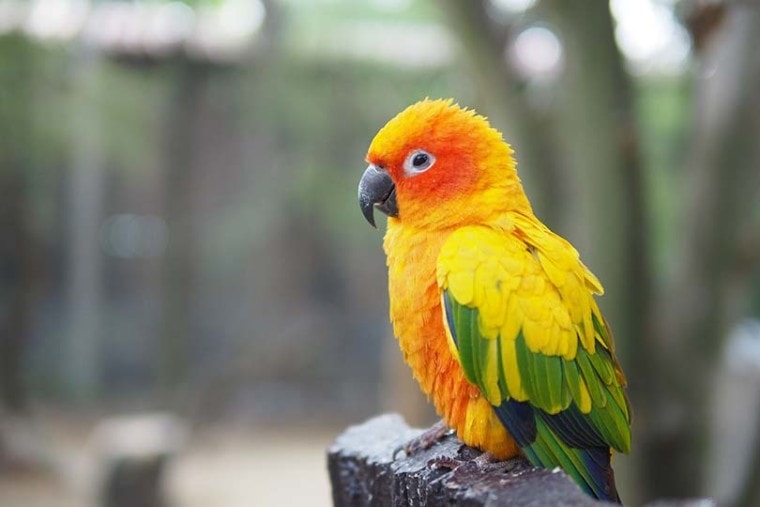
Conures are a large group of relatively small parrots. These birds are extremely colorful with long multi-colored tails and bodies. Conures are friendly birds that often like to clown around in their cage. It’s not uncommon to find them engaging in behaviors like hanging upside down or dancing in their cage.
Regardless of what animal we add to the family, we often want to take our pets home as young as possible in order to maximize our time with them. If you are thinking about getting one of these birds but are unsure about how old they should be when you bring them home, the general rule is that a conure should be at least 12 weeks old prior to being brought into a new home.
Optimal Age to Bring Home A Conure

Most experts recommend waiting until the conure is at least 12 weeks old to bring them home. By 12 weeks, your bird should be weaned and able to properly regulate their temperature and won’t require any special care, though some birds can take as long as 6 months to be ready. It’s best to let the bird set the pace; a longer weaning time sometimes results in a more closely bonded bird.
With the bird weaned, you can take them home. Outside of their smaller size and slightly altered diet to promote strength and growth, your new conure will be similar to an adult and will require the same basic care.
What If My Conure Is Still Weaning?
If your chosen bird is still weaning, it’s best to exercise patience and wait until they are weaned. It’s not common for a conure to take an exceptionally long time to completely wean, but it does happen in certain circumstances.
Adopting the conure too early might result in stress for you, your new pet, and your pet’s parents. Therefore, it isn’t advisable to adopt a pet that isn’t ready to be taken to a new home.
Birds that have been hand-raised by a breeder can be brought up while they’re still being weaned, if you’re up for the challenge of hand-feeding them. However, please be mindful that hand-rearing a bird is a massive commitment, and mistakes often lead to a pet bird that doesn’t thrive. It is therefore best to let a professional caretaker wean the bird for you.

Fun Facts About Conures
Summary
In most cases, you will want to wait until your conure is eating solid food before taking them home. Waiting will mean that you don’t need to worry about feeding formula to them and weaning them yourself, which can be stressful for you and the bird, especially if you are inexperienced with baby birds. It may also interfere with bonding time with your bird. Most birds will be ready in about 12 weeks, but some can take as long as 24 weeks; each bird is different.
See Also:
- 5 Best Conure Foods
- Can Conures Eat Raisins? Important Feeding Facts
- Can Conures Eat Tomatoes? What You Need to Know
- Can Conures Eat Oranges? Everything You Need to Know
Featured Image Credit: rutpratheep0, Pixabay









